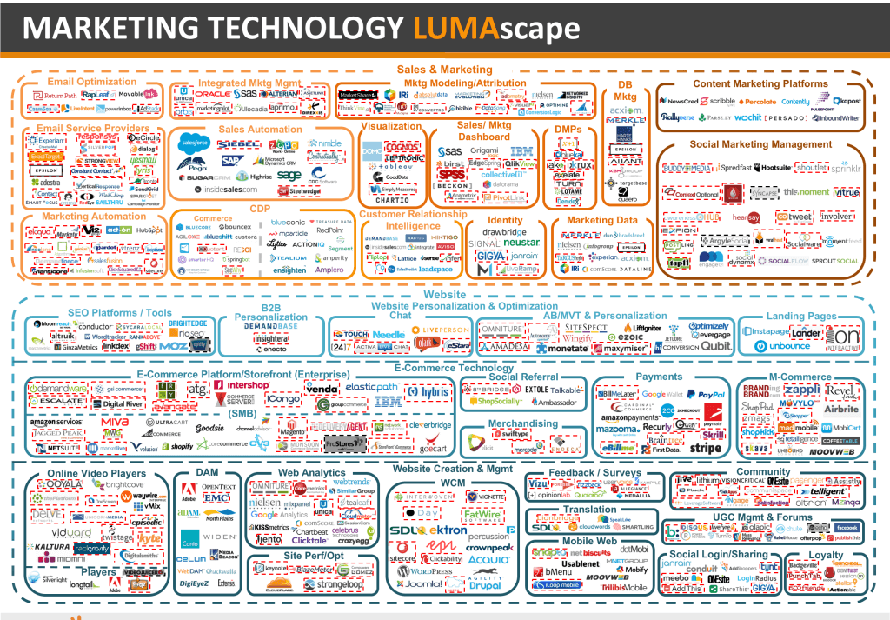The mainstay of online advertising is "behavioral advertising" in which ads are placed based on dossiers of your activity and preferences that have been compiled by Big Tech giants and shadowy data-brokers.
1/
1/
The cornerstone of behavioral advertising is "real-time auctions": when you request a web-page, its publisher fetches your cookie, correlates that with your identity in multiple databases, then offers the chance to advertise to you to several (dozens, sometimes more) brokers.
2/
2/
That's how you end up with creepy, "retargeted" ads that follow you around the web after you search for a specific kind of information, say, on erectile dysfunction: you get a tag called "person interested in boners" and that attracts bids from boner-pill vendors.
3/
3/
All of that is reasonably well-known, as are the surveillance consequences of it. But what's less well-known, and just as important, is what happens to the LOSERS of the realtime auctions when you visit a site.
4/
4/
Say you visit the Washington Post. Dozens of brokers bid on the chance to advertise to you. All but one of them loses the auction. But every one of those losers gets to add a tag to its dossier on you: "Washington Post reader."
5/
5/
Advertising on the Washington Post is expensive. "Washington Post reader" is a valuable category unto itself: a lot of blue-chip firms will draw up marketing plans that say, "Make sure we tell Washington Post readers about this product!"
6/
6/
Here's the thing: the companies want to advertise to Washington Post READERS, but they don't care about advertising IN THE WASHINGTON POST. And now there are dozens of auction "losers" who can sell the right to advertise to you, as a Post reader, when you visit cheaper sites.
7/
7/
When you click through one of those dreadful "Here's 22 reasons to put a rubber band on your hotel room's door handle" websites, every one of those 22 pages can be sold to advertisers who want to reach Post readers, at a fraction of what the Post charges.
8/
8/
Every website that includes behavioral advertising realtime auctions is slowly eroding its own rate-card, making it possible to target its readers somewhere else.
9/
9/
When we talk about the death of "display advertising" (where, say, Ford buys a month of banners on a site), we correctly blame behavioral ads, but the story we tell about those ads is wrong.
10/
10/
It usually goes, "Ford has figured out how to target car-shoppers without paying top dollar to prestige venues like the Washington Post." But what's ALSO happening is "Ford has figured out how to advertise to Washington Post readers without paying Washington Post rates."
11/
11/
Behavioral ads grew up with Big Tech and its mass surveillance. Data-brokers make crazy claims for how well their targeting works in "conversions" - that is, turning ads into sales. But these are obviously self-serving claims.
12/
12/
The ad industry's core competency isn't selling advertisers' products to consumers: it's selling advertising services to advertisers. Moving product is a good way to do that, but so is bullshitting in ways that drive up payments.
13/
13/
Meanwhile, there is another method for placing ads, one that is decidedly technologically enabled, unique to the digital world, with fewer middle-men skimming the cream and no erosion of your rate-card: Contextual advertising.
14/
14/
That's when publishers sell off the right to advertise to you based on the subject of the article you're reading, your location (based on your IP address) and other metadata, like which browser and OS you're using.
15/
15/
Contextual advertising converts at very nearly the same rate as behavioral advertising, and just as well as behavioral ads for some categories of goods and services:
https://weis2019.econinfosec.org/wp-content/uploads/sites/6/2019/05/WEIS_2019_paper_38.pdf
16/
https://weis2019.econinfosec.org/wp-content/uploads/sites/6/2019/05/WEIS_2019_paper_38.pdf
16/
And - once again - any short-term losses from contextual ads are more than offset by averting the long-term death-spiral of by behavioral ads, in which parasites chase the cheapest possible content, earning ad revenues by targeting readers of better publications.
17/
17/
Contextual ads are gaining ground, thanks, in part, to laws like the #GDPR, which have simultaneously made it harder to do behavioral advertising, AND imposed compliance burdens that wiped out most of Europe's smaller ad-tech firms, leaving US tech giants in control.
18/
18/
Last year, the @nytimes ditched most of its programmatic behavioral ads:
https://www.adexchanger.com/publishers/new-york-times-will-pull-programmatic-ads-from-mobile-app-next-year/
19/
https://www.adexchanger.com/publishers/new-york-times-will-pull-programmatic-ads-from-mobile-app-next-year/
19/
Now, the Netherlands's public broadcaster @PubliekeOmroep has done the same, ditching Google Ad Manager for a new custom contextual ad system it commissioned from the Dutch company @ORTEC_NL.
https://www.wired.com/story/can-killing-cookies-save-journalism/
20/
https://www.wired.com/story/can-killing-cookies-save-journalism/
20/
They've since experimented with major advertisers like Amex and found little to no difference between context ads and behavioral ads when it comes to conversions.
21/
21/
And, thanks to the GDPR (which requires affirmative opt-in for behvioral ads), these context ads reach far more readers. The result is a massive increase in revenues: up 62% in Jan and 79% in Feb, year-on-year.
22/
22/
And they're keeping that money, rather than giving a 50% vig to useless, creepy, spying ad-tech middlemen.
Ads often pay the bills of the people who make the things you love. But ad-tech? That pays the bills of the people who are destroying the things you love.
23/
Ads often pay the bills of the people who make the things you love. But ad-tech? That pays the bills of the people who are destroying the things you love.
23/
Technologies like @EFF's @PrivacyBadger block trackers (protecting your privacy and publications' rate-cards), but not ads (provided they don't track). Ultimately, this needs systemic, not individual solutions (a US federal privacy bill with a private right of action!).
24/
24/
But while we're waiting for a systemic solution, Privacy Badger and other tracker-blockers can help weight the scales in favor of context ads instead of behavioral ones.
eof/
eof/

 Read on Twitter
Read on Twitter